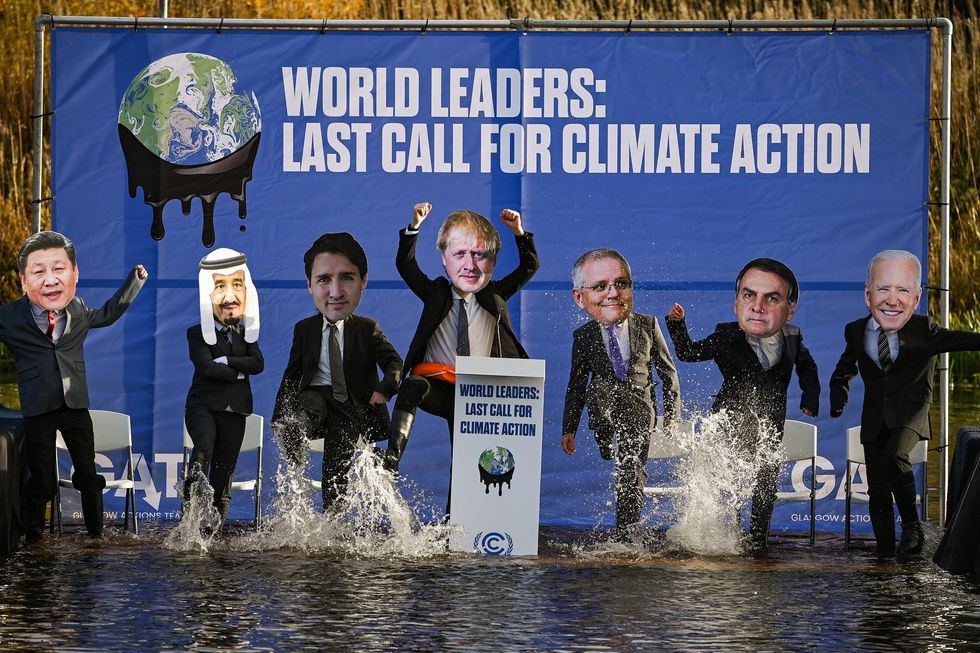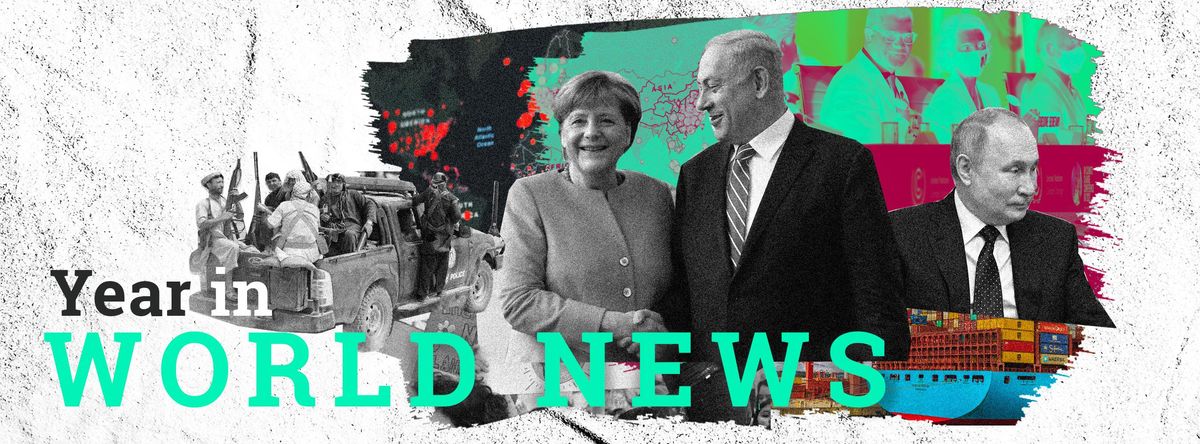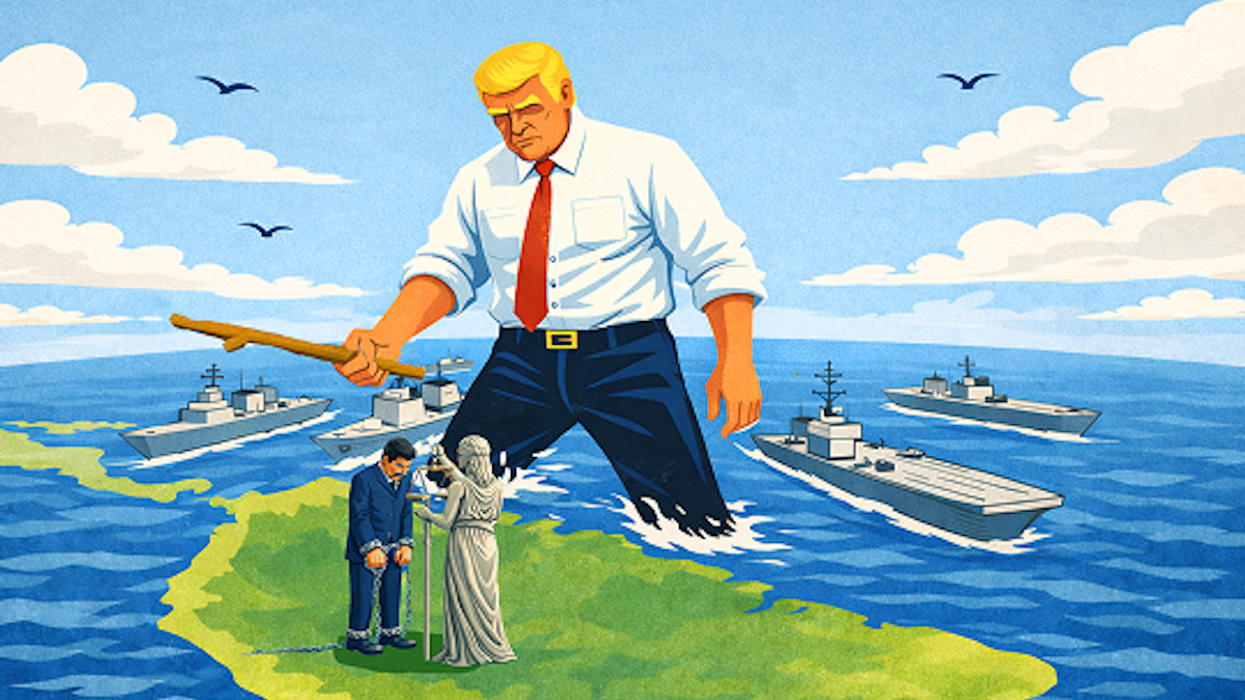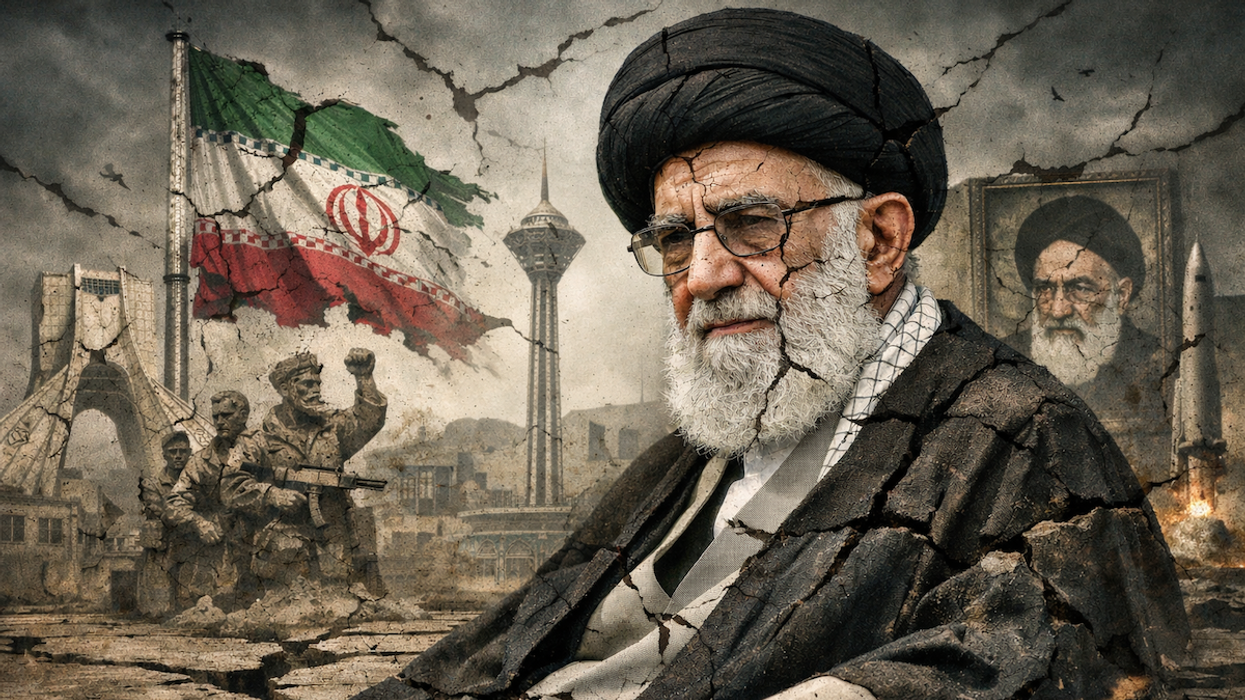If you thought 2020, the annus horribilis par excellence that TIME Magazine crowned “The Worst Year Ever”, was rock bottom, 2021 was set to prove you wrong.
Here’s my pick of the events that rocked the world beyond measure this year (in no particular order).
Democracy was under siege
Want to understand the world a little better? Subscribe to GZERO World with Ian Bremmer for free and get new posts delivered to your inbox every week.
Like this newsletter? Share it with others you think would enjoy it, too.
 Jair Bolsonaro waves to supporters at September 7 rally. Andre Borges/picture alliance via Getty Images
Jair Bolsonaro waves to supporters at September 7 rally. Andre Borges/picture alliance via Getty Images
Elsewhere, India’s Prime Minister Narendra Modi cracked down on his critics’ ability to express dissent on social media and presided over increasingly discriminatory policies and rhetoric against the country’s Muslim minority. Poland and Hungary’s illiberal governments continued their descent into authoritarianism. China intensified its clampdown on pro-democracy movements in Hong Kong as well as its repression of Uyghurs in Xinjiang. Russia, Belarus, and Cuba went to extreme lengths to silence dissent. And successful coups dislodged nascent democracies in Myanmar, Afghanistan, Sudan, Mali, Chad, and Guinea.
On the bright side, Germany, Japan, and Canada—the three largest democracies with elections in 2021— had successful, fully legitimate elections and, in the case of the former two, peaceful transitions of power.
America came back…ish
After four years of Trump’s ‘America First’ policies, the election of Joe Biden promised to bring America “back” to its historic role as leader of the free world.
Biden had some early successes: returning the US to the Paris climate accord and the World Health Organization, renewing New START, committing to strengthening the transatlantic relationship while deepening ties with the Quad alliance (made up of Australia, India, Japan, and the US) to push back against China’s expanding influence across the Indo-Pacific, ending drone strikes in Yemen, resuming nuclear negotiations with Iran, endorsing a global minimum corporate tax, and donating more Covid-19 vaccines than any other country.
In many areas, however, Biden was unwilling or unable to break with Trump’s policies, largely due to constraints (some domestic, some global) inherent to the G-Zero order that prevented him from doing more. Such was the case of trade and China policy, for which major reversals were non-starters at home. On climate, Biden lacked the Congressional majorities and popular support needed to credibly commit the US to global leadership. Washington couldn’t revive the Iran nuclear deal because Trump had killed it, Tehran wouldn’t accept the old terms, and the international coalition that made it work in the first place had frittered away. And on immigration, Biden’s agenda was met by stiff resistance from the public and the courts.
And then there was the Afghanistan withdrawal. Like his predecessor before him, Biden had vowed to end America’s longest war before the 20th anniversary of 9/11. It did not go well. While the pullout may have been the right call strategically, it was widely panned as a disaster born of poor planning, deficient intelligence, botched execution, and a failure to coordinate with allies. Within weeks of US forces departing, the Taliban had taken over the entire country. The debacle left a gruesome regime in control of a deeply unstable nation, tarnished America's image, alienated allies, and cost the president at home.
Big Tech stepped in where governments failed
Nation states have been the primary drivers of global affairs for nearly 400 years, in charge of conducting war and peace, providing public goods, writing and enforcing laws, and controlling flows of information, goods, services, and people. In 2021, it became clear that that’s beginning to change.A handful of tech giants like Meta (Facebook), Google, Amazon, and Alibaba have managed to amass enough power to wrest control over societies, economies, and even national security away from states in the increasingly important digital space. These companies are increasingly acting as sovereigns, with growing influence over our digital, and real-world, lives.
Remember SolarWinds? When Russian hackers breached US government agencies and private companies last year, it was Microsoft, not the National Security Agency or US Cyber Command, that first discovered and cut off the intruders.
And after rioters stormed the US Capitol on January 6, it was social media companies—not law enforcement, Congress, or the judiciary—that sprang into action to punish those responsible. Facebook and Twitter swiftly de-platformed President Trump. So did Paypal, Stripe, and Shopify. Amazon, Apple, and Google banished Parler, the social network rioters used to organize the Capitol mutiny.
Tech companies were able to exert this power because they own and control a growing share of the infrastructure that societies, economies, and governments worldwide increasingly run on. Just four companies—Alibaba, Amazon, Google, and Microsoft—meet the bulk of the world’s demand for cloud services, the essential computing infrastructure that has kept people working, kids learning, and the global economy growing during the Covid-19 pandemic. Without their services, the Covid recession would have been much deeper and longer.
Their influence has not always been positive. Big Tech’s sovereignty over cyberspace, combined with firms’ generally hands-off approach to content moderation, means they are responsible for failing to adequately police misinformation about vaccines and Covid more generally. While companies have taken some measures to combat the so-called “ infodemic,” studies have found that online misinformation has increased vaccine hesitancy and caused excess Covid deaths.
Momentum for climate action passed the point of global resistance
It was a busy year for climate, with lots of good and not-so-good developments.
 The Glasgow Actions Team activists dress as world leaders. Jeff Mitchell/Getty Images
The Glasgow Actions Team activists dress as world leaders. Jeff Mitchell/Getty Images
The pandemic continued to ravage lives, livelihoods, and politics
The coronavirus pandemic continued to sweep the world, killing more than 5.4 million people globally (including 840,000 in the US) at the time of writing—almost two-thirds of whom died in 2021.
The vaccine rollout started out slow and uneven, leading to the emergence of the highly infectious and deadly Delta strain. Eventually half of the world’s population got inoculated, bringing down deaths and hospitalizations. While this was an impressive feat, shots alone did not end the pandemic, as global inequities in vaccine access and high rates of vaccine hesitancy made the world vulnerable to fresh waves and immune escape. As a result, we are now battling Omicron, a highly-mutated variant that’s running loose through every continent and increased the urgency of booster shots.
Meanwhile, the pandemic continued to disrupt the global economy. Most rich countries experienced a strong recovery in economic activity in 2021 thanks to large-scale fiscal and monetary support, but the story was different for the developing world, much of which lacked the means to buffer the shock and therefore experienced a slump. However, even in countries like the US where growth recovered to pre-pandemic levels, new waves of the virus disrupted supply chains and drove up the prices of everything from food and energy to cars and shoes.
Frustration and anger reached new highs in most societies after two years of lockdowns, mandates, economic disruptions, and growing inequality. Widening gaps in vaccine access, take-up, and economic recovery within and between countries fanned social unrest and anti-establishment sentiment both on the far left and the far right of the political spectrum, weakening incumbents everywhere.
Frustration and anger reached new highs in most societies after two years of lockdowns, mandates, economic disruptions, and growing inequality. Widening gaps in vaccine access, take-up, and economic recovery within and between countries fanned social unrest and anti-establishment sentiment both on the far left and the far right of the political spectrum, weakening incumbents everywhere.
Frustration and anger reached new highs in most societies after two years of lockdowns, mandates, economic disruptions, and growing inequality. Widening gaps in vaccine access, take-up, and economic recovery within and between countries fanned social unrest and anti-establishment sentiment both on the far left and the far right of the political spectrum, weakening incumbents everywhere.
In other news…
- Xi Jinping made moves to further consolidate his power over China’s private sector, economy, and ruling Communist Party.
- Russia’s Vladimir Putin became increasingly defiant, commemorating the 30th anniversary of the Soviet Union’s collapse by massing 100,000 troops along the Ukrainian border and threatening yet another invasion.
- Angela Merkel handed over leadership of Germany and Europe to Olaf Scholz after 16 years as German chancellor.
- Bibi Netanyahu got ousted after 12 controversial years as Israel’s longest-serving prime minister.
- El Salvador became the first country to adopt Bitcoin as legal tender as the cryptocurrency soared to all-time highs.
- Brexit hit yet another snag in the road as the British government threatened to start a trade war with the EU over the Northern Ireland protocol and fought with France over fishing rights.
- Iran came dangerously close to nuclear breakout as talks with the US stalled and Western sanctions failed to rein in Tehran’s enrichment activities.
- Ethiopia’s civil war deepened as the balance of power swung back and forth between government forces and the Tigray People’s Liberation Front, causing a looming humanitarian crisis.
- France momentarily recalled its ambassador to Washington after AUKUS, a surprise security pact between the US, the UK, and Australia, sank a major submarine procurement contract between Paris and Canberra and infuriated President Macron.
- Often backed by rogue states like Russia, Iran, China, and North Korea, hackers disrupted critical operations and stole more than $45 million in cyber and ransomware attacks, the most notable of which was the Colonial Pipeline breach.
Finally, some links
1. Things to watch:
- Authoritarianism’s enduring appeal: Anne Applebaum discusses
- Biden’s rocky start on foreign policy
- Brazil on the brink
- Big Tech: Global sovereignty, unintended consequences
- Surviving a warming planet
2. Things to read:
- 2021 in review: The year in climate change
- Omicron: What the latest Covid strain means for public health, economic recovery, and Joe Biden
- Inflation is at 30-year highs. You can blame the pandemic for it
- Is it time to bow before our tech overlords?
- Who will lead Europe after Merkel?
- Bolsonaro is inciting a 'January 6'-style insurrection in Brazil. It won't work
- Everything you need to know about the Afghanistan withdrawal
3. Things to listen to:
- COVID Continued: What the world will look like in 2022
- Inflation, interest rates, and economic recovery
- Can private companies lead the way on climate action?
------------
🥂 Happy New Year, dear readers. Here’s to a better, less newsworthy 2022.
🔔 And if you haven't already, don't forget to subscribe to my free newsletter, GZERO World with Ian Bremmer, to get new posts delivered to your inbox.


















